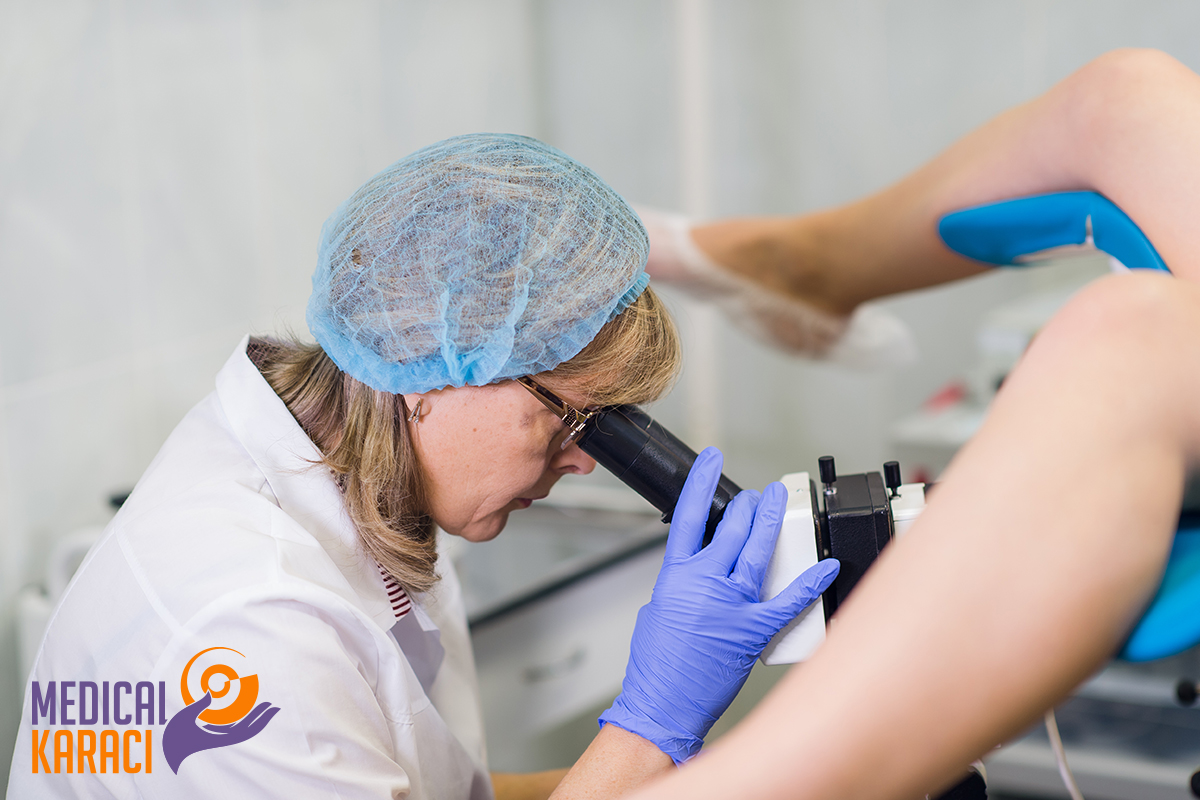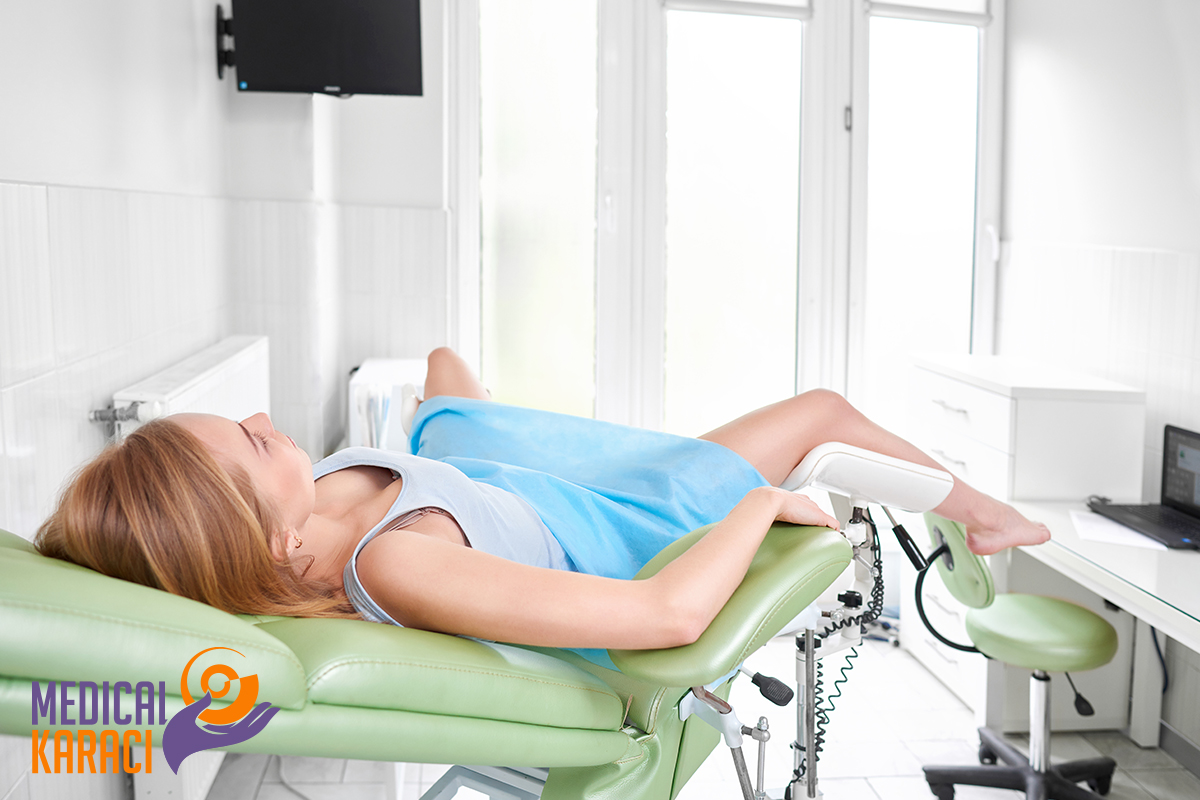It is good to first clarify that the terms polycystic ovaries and polycystic ovary syndrome (PCOS) are two different conditions.
What is the difference?
Polycystic ovaries are seen on ultrasound screening. The ovaries are filled with a large number of partially mature follicles. This is a normal condition of the female ovary.
Polycystic ovary syndrome is diagnosed in women with abnormalities in androgen and estrogen metabolism, and its cause is still unclear.
The synthesis of estrogens in the female organism begins at the onset of puberty with the maturation of the first follicle. When ovulation occurs, the levels of estrogens in the blood rise sharply, and this stimulates sexual activity. In the female organism, male sex hormones are also synthesized - testosterone, DHEA, androstenedione. The disturbed balance between them leads to changes in the menstrual cycle, women may have too long or too short menstrual periods. Multiple small follicles form in the ovaries which fail to release an egg and/or lack of ovulation. This, in turn, leads to problems with fertility and reproductive health.
What are the symptoms?
Symptoms can be varied, encompassing reproductive and metabolic as well as psychological health. Few women have the same set of symptoms and they can change at different stages of life and age.
The most common and frequent symptoms that point to the search for the diagnosis are:
- irregular monthly cycle
- increased hair on typical areas of the body - on the face, between the breasts, on the midline of the abdomen, back, thighs and fingers
- elevated male hormone detected after blood tests
- acne, hair loss, oily skin
- menstrual periods may be less frequent or more frequent due to less frequent or absent ovulation
- 20 or more follicles are present in 1 ovary on ultrasound examination
- mood swings - including anxiety and depression
- obesity
- sleep apnoea
A woman may have irregular menstrual cycles and elevated androgens to identify the presence of Polycystic Ovary Syndrome, but her ovaries may not be polycystic. A differential diagnosis should also be made in cases where there is thyroid or pituitary dysfunction, and in disorders of the hypothalamic-pituitary axis.
How is Polycystic Ovary Syndrome diagnosed?
In order to diagnose Polycystic Ovary Syndrome, a longer observation is necessary, in which to track a woman's ovulation, the duration of the cycle, the change in hormones during different phases.
- A gynecological examination with transvaginal ultrasonography is performed - the doctor palpates the reproductive organs for growths or abnormalities. The thickness of the lining of the uterus is established, as well as the structure of the ovaries.
- Blood tests are done - The androgens we listed above are studied, as well as the female sex hormones and their ratio in the different phases of the monthly cycle.
Glucose tolerance tests are also performed as insulin resistance is common in CJD. Upon diagnosis of PCOS, the treating physician may recommend regular monitoring of blood glucose, cholesterol and triglyceride levels.
How is Polycystic Ovary Syndrome treated?
Lifestyle change:
Insulin resistance often leads to obesity and sometimes overweight. It has been shown that weight loss of as little as 5% can lead to a significant reduction in insulin resistance and improved ovarian function.
The diet should be balanced and include enough fruits and vegetables, whole grains, brown rice, clean meat and fish.
It is a good idea to limit caffeine intake, as caffeine reduces levels of the substance myoinositol (a form of vitamin B8), which is essential for good ovarian function.
Smoking is absolutely forbidden in patients with SPKJ. We all know that women have a particular affinity for chocolate and confectionery, but in proven Polycystic Ovary Syndrome it is a good idea to keep sugar intake to a minimum to maintain normal insulin values. Medications sometimes recommended are those used for type 2 diabetes such as Metformin, which lowers insulin and blood sugar levels in women with PCOS, thereby delaying ovarian function.
Treatment of Polycystic ovary syndrome (JRCN):
In some cases the inclusion of HORMONAL THERAPY - especially in cases of infertility and reproductive problems. Therapy is also necessary in case of pronounced external signs of PCOS - hair loss, increased hair growth, by applying drugs blocking the effect of testosterone or suppressing the production of other androgens.
The majority of women can be treated successfully with a short course of treatment over several monthly cycles. Progesterone preparations are recommended to induce regular menstruation, which reduces the long-term risk of developing endometrial cancer associated with the absence of menstruation.
Other hormonal methods of contraception and treatment are intrauterine systems (IUS), or so-called spirals. These keep the lining at a normal thickness but may not induce menstruation.
There is a method for SURGICAL TREATMENT when diagnosed with Polycystic Ovary Syndrome, called Laparoscopic Ovarian Diathermy or LOD.
The procedure is not commonly used as it involves treating the layer of the ovary that is responsible for producing male sex hormones. By lowering the levels of testosterone and luteinizing hormone, and raising the levels of follicle-stimulating hormone, the hormonal imbalance is corrected and normal ovarian function is restored.
Let us recall that, after all, this is a surgical intervention and is applied only after ineffectiveness of drug therapy. Moreover, more and more specialists prefer to avoid direct treatment of the ovarian wall and perform an in-vitro procedure as far as reproductive problems are concerned due to the fact that any injury to the ovaries can affect their reserve.
For more information, we at Medical Karaj are at your service.
Call us on the following numbers "Medical Karaj": 0879 977 401 or 0879 977 402.
Also keep an eye on our constantly updated Facebook content.






